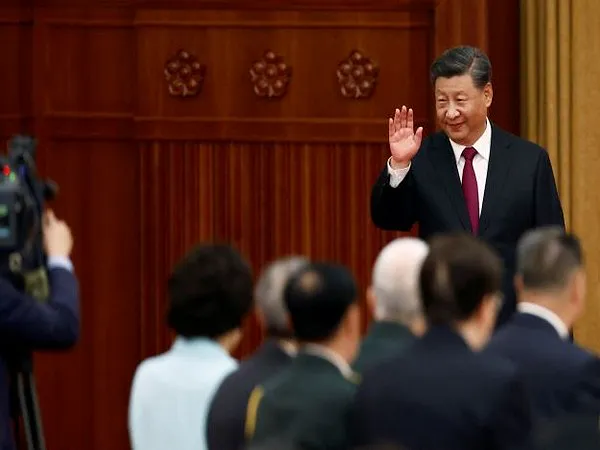Chinese social media censors have blocked posts, keywords, and hashtags related to the extremely rare public protest ahead of a landmark Chinese Communist Party (CCP) meeting that is scheduled to begin on October 16, at which President Xi Jinping is expected to secure a historic third term.
Hong Kong media have remained largely muted on a rare protest in Beijing that called for the ousting of China’s leader Xi Jinping ahead of the historic 20th Communist Party congress. The meeting, a once-in-every-five-years event, is set to begin on Sunday and will likely see Xi secure an unprecedented third term, reported Hong Kong Free Press (HKFP).
The protest in Beijing involved banners denouncing Chinese President Xi Jinping and the country’s stringent COVID-19 policies.
On Thursday, reports emerged on the mainland that two banners had been draped across Sitong bridge – an overpass in the capital’s Haiding district. One of the banners, according to online images, called on people to go on strike to “oust the dictator, traitor Xi Jinping.”
Another banner meanwhile listed a range of grievances, including some against the country’s stringent Covid-19 restrictions. “We want food, not PCR tests. We want freedom, not lockdowns. We want respect, not lies. We want reform, not Cultural Revolution. We want a vote, not a leader. We want to be citizens, not slaves.”
International outlets such as Bloomberg, Reuters and the Wall Street Journal reported on the incident, whilst it appeared as the top story on the BBC News website. It was also covered by Taiwanese media and independent platforms such as Initium, though the protest was ignored by mainstream Hong Kong outlets, reported HKFP.
The banners were removed quickly on the same day but photos were already being widely shared by netizens.
Chinese authorities, however, were swift to take down social media posts related to the incident, including those with keywords such as #Haidian, #Sitong bridge, and even #Beijing. There was also police presence near the overpass afterwards.
US-based Chinese writer Fang Shimin said on Twitter that the person who allegedly hung the banners was a man called Peng Lifa, who calls himself Peng Zaizhou online.
Fang claimed that Peng left comments on his previous posts before the protest, and shared similar content about protesting on the ResearchGate website. The content has now been deleted, Fang said, reported HKFP.
Following the censorship, people used another hashtag – #ISawIt – to communicate on China’s Twitter-like Weibo platform. But those were also removed, with some reporting that their account was permanently blocked.
When searching for the #ISawIt hashtag on Weibo, the platform showed a message that reads “[A]ccording to relevant laws and regulations, the topic page cannot be displayed,” reported HKFP.
Others meanwhile took to Twitter, saying the person who hung the banners was “brave.”
Hours after Thursday’s protest images went viral, state media commentator Hu Xijin said on Twitter that citizens supported the country’s leadership: “China’s political stability is solid, because the country is developing very well in general, and the vast majority of people support the CPC’s leadership, hoping for stability and opposing upheaval.” He did not make reference to the demonstration.
Beijing was on high alert on Friday against any disruption to a landmark Chinese Communist Party meeting where Xi is expected to secure a historic third term as president.
Armies of volunteers have been deployed in every neighbourhood in Beijing to report anything out of the ordinary, and parcels to subway commuters have been subjected to additional security checks.

